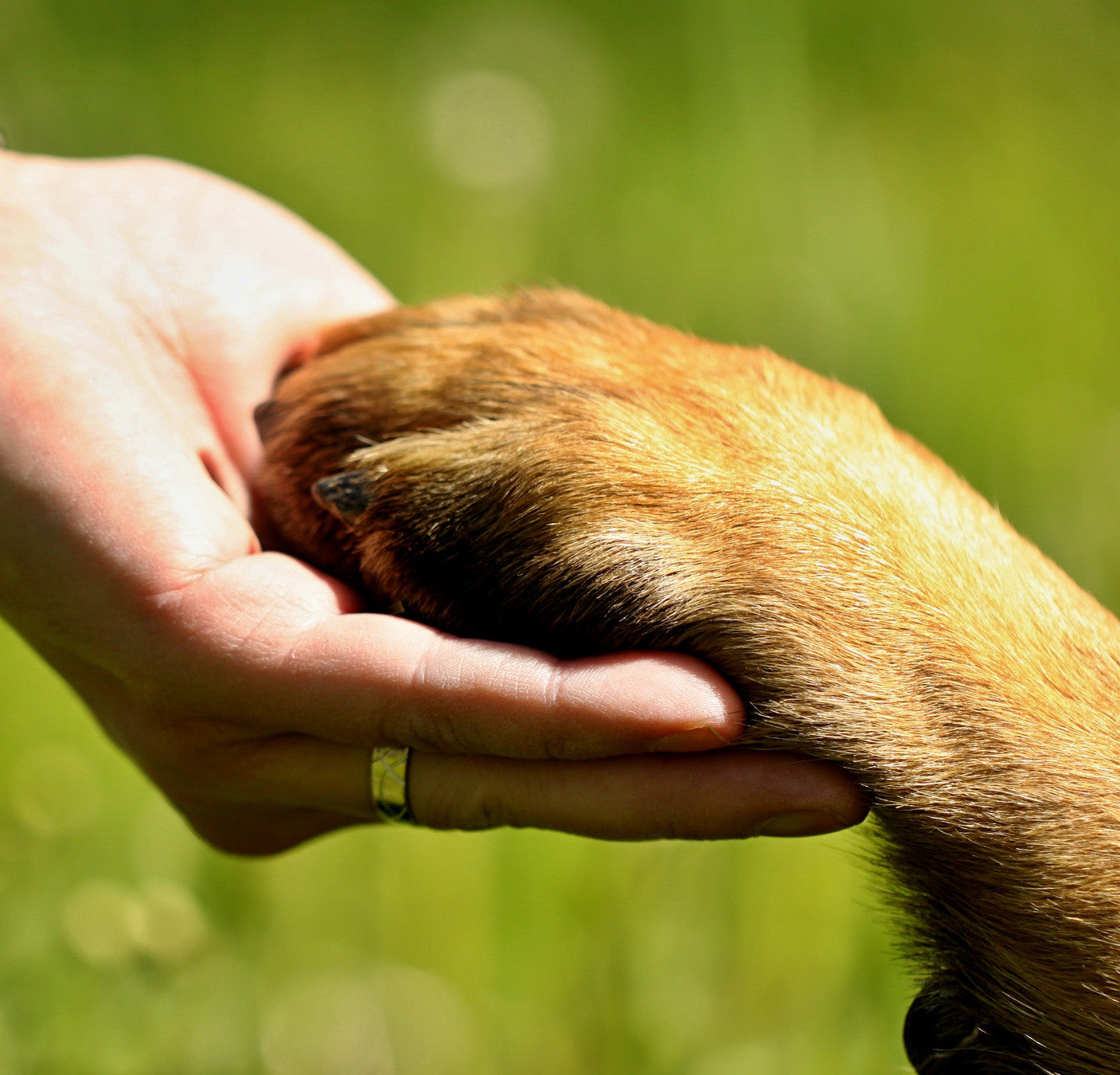
THE FIRST MEETING
It's here! The moment you've been waiting for has arrived! Today, or in a few days, you might meet a new member of your family! You're excited and a little nervous. Your future companion would be just as excited if they knew what was going on! But it's a privilege that belongs to you since animals don't understand the purpose and meaning of this first meeting. That's why you shouldn't judge an animal based on it if it doesn't go as you had dreamed.
Imagine that one day, out of the blue, a group of strangers decide to flock to you, smiling and speaking in a strange voice, very close to your face while touching you. How would you feel? Keep this image in mind as you read the rest of this article!
So, you think you're ready for that first date? You've probably prepared well, read up on a ton of things you need to know before adopting, debunked a lot of misconceptions, and are leaving feeling really confident and convinced of the benefits of having this new companion in your life.
Despite all this, do you actually know how to act during this first encounter? Do you know how to approach or greet them, for example? Here are some recommendations that will help you make this first encounter a success.
- WE PREPARE QUESTIONS
Some cute little faces will make you fall in love at first sight, but don't let your heart melt and let you lose all rational thinking. We recommend preparing a list of concrete questions to ask the shelter staff about the animal you're considering adopting, to avoid as many problems as possible in the future. What kinds of questions should you ask? This goes beyond the animal's housetraining or vaccinations. What you want to know, what you MUST know, is whether the animal is really right for you, your family, and your lifestyle. Here is a selection of 12 questions that might be important to ask (you be the judge).
-
YOU WILL FIND INTERESTING: 👉 The perfect animal for you... It exists!
- How long has the animal been in the shelter?
- Was it found or abandoned?
- How would the shelter staff describe their daily interactions with the animal? Questions about the animal's energy level or temperament may follow to give you a sense of its personality. All animals, even snakes, have different energy levels and temperaments, which are unique to each individual.
- What are his tastes? His favorite hobby? His favorite food? His peculiarities?
- How old is he?
- How long does an animal of its breed usually live?
- Does he have any special food or care needs?
- How does he react when we want to teach him certain things, train him?
- Has he ever come into conflict with other animals in the shelter?
- What is his health status? Does he have any problems related to aging or pain from an old injury, for example?
- Is he sociable?
- Is he trained to go in his kennel or to be walked on a leash?
-
LEARN MORE ABOUT: 👉 The stages of adoption...a short guide for a great project!
Use these questions as inspiration to create your own to determine if your lifestyle will be a good fit for the pet you're interested in, and vice versa. We created this questionnaire with the help of experienced pet adoption professionals: Carrie from Phoenix Rising Rescue , Linda from K9BFF Rescue, Dorothea Boughdadly from Hoofs and Woofs Animal Rescue , Suzanne Kleinberg from Team Cat Rescue , Larry from Blue Moon Cat Sanctuary , Keyria Lockheart from Last Hope Cat Kingdom , and many others whose experience has benefited us.
The important thing to remember is that it's your right to ask questions. Don't be afraid to embarrass or exaggerate by doing so. That's the only way you'll get to know the animal, and in fact, the staff will be delighted to see you do it. It will also allow them to get to know you and which animal is right for you. They'll see that you're taking your adoption seriously, which will reassure everyone. Be as honest and sincere as possible. And be honest with yourself too. If you don't like the answers you're given, don't convince yourself that the animal you've had your eye on will still be the right one, that things will work out... Remember that your decision involves you and your new companion for life... yours or theirs.
- WE ARE KIND AND COOPERATIVE
A first meeting is an important event for everyone, including the staff responsible for administering it. You can't imagine all the work involved in welcoming an animal to the shelter, caring for it, finding it a family, and following up with it. The staff does their job, of course, but that doesn't mean they aren't tired, and you're not the only one asking them questions. They answer them all week long!
If possible, try to select one or two animals that really interest you before launching into a flurry of questions. This will give you better service! A meeting at the shelter should not be seen as a visit to the zoo. Animals are not there for fun, but to find a family that will give them a second chance.
- WE GO THERE AS A FAMILY
Well, by family, we don't mean the entire clan, including grandmother and great-aunt. Only you know who your family is. So, everyone who will be living with the animal should participate in this first visit and meeting, even pets if possible. Welcoming an animal into a family is a big decision that everyone should be involved in. Imagine that one of the family members (including other animals) is not there when the animal is chosen and that afterwards, their bond with it is not positive. You would have to live through a situation that no one wants and perhaps even make heartbreaking choices.
- WE STAY COOL
If there were a safe, "zen pill," we'd recommend taking it for the big day! Don't get too nervous or excited to the point of losing your common sense, because that's not when you make the best decisions. Also, if you're too nervous, the animals will sense it and show it in their own way: fear, aggression, shyness, or hyperactivity. On the contrary, if you're calm, the animal, through mimicry, will be too, and you'll really be able to discover it at its true measure. Imagine yourself on the couch in the living room, cuddling it, and try to reproduce this atmosphere by creating a bubble for yourself as much as possible. You'll see that the animals will be drawn to you, and the meeting will be much less stressful.
- WE TAKE CARE OF OUR MANNERS
You can't expect a dog to react like a cat or a bird. Each species has its own social codes, and before you go to the visit, it might be a good idea to learn about them if this is new to you. For example, a dog rarely likes to be picked up without notice and without you letting him sniff you first. There's a whole ritual to follow before getting to the cuddle: letting him smell you, petting him, scratching him behind the ears, letting him sniff you again, sometimes even licking him, rubbing his belly. Afterward, and only afterward, and once the staff has given you their approval, you might be able to pick him up. Why? Because in the dog world, being picked up and kissed by a stranger is like being assaulted in the middle of the street in broad daylight. The animal will think you're rude and insulting, which, you'll agree, is a bad start!
Another thing to remember is that shelter animals have their own personal stories. You can't treat them the same way you would any other pet that has been socialized in good conditions and without trauma.
Moral? Stay informed and watch your manners. Everyone will appreciate it.
- WE TAKE NOTES
First encounters are often quite emotional, and it's easy to forget things or mix up information. You saw a cat with whom everything went well. You see another elsewhere with whom it's less conclusive... and then later, you can't remember which is which. Classic! This is why you need to take careful notes if you visit several facilities and meet different animals. And then, in this day and age, why not take advantage of technology to make short films to watch them later in peace? It will be even simpler and more meaningful when the time comes to make a choice.
This is advice given to us by Anne Fifield of Basset Rescue Texas:
“Keep track of your animal if you visit more than one shelter. Make sure you note where you met the animal. If you want to call back to ask about Pollux, but you don't have the right name or contact the right place, it could take you a while to find him!”
- KEEP IN MIND THAT IT MAY NOT BE THE RIGHT ONE
Despite all your efforts and good preparation, it may be that no animal has sufficiently won your heart and your mind. You have not found the animal that is right for you? It simply means that you are taking this adoption seriously! Do not feel guilty if you leave the shelter without an animal. Just like you, every creature deserves to be loved and to find a family that suits them. Although we have natural homeopathic products to help an animal adapt to a new home ( Dominant Male and other tailor-made formulas ), it is always better to be honest with yourself and assume when something may not work. Do not bring an animal back if you are not sure. This gives it the chance to find the human who will suit it and with whom it will be happy, and the perfect animal for you exists! Be proud of your decision: you did not act selfishly and you show maturity.
- WE ADOPT!
Hooray! You've met the big guy! You've reached the official adoption stage! Check out our article THE STAGES OF ADOPTION: A SHORT GUIDE TO A GREAT PROJECT.
Share this article and others with anyone interested in adoption! We also always welcome your comments and tips! Share your experience on our Facebook page or subscribe to our newsletter and stay up to date with the latest news from the animal world, updates to our blog, and other surprises!
See you next time!


















Leave a comment
This site is protected by hCaptcha and the hCaptcha Privacy Policy and Terms of Service apply.